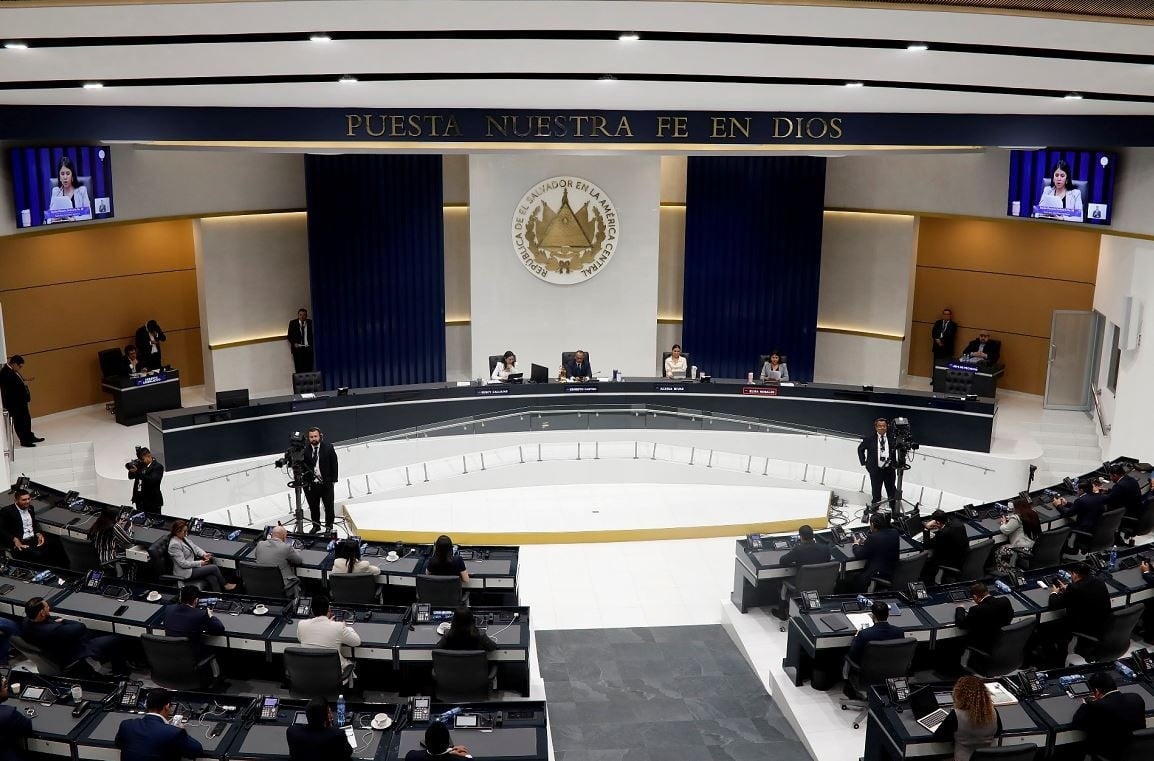On Thursday, Juanita Goebertus, director of the Americas Division at Human Rights Watch (HRW), stated that the party of Salvadoran President Nayib Bukele, Nuevas Ideas (NI), “is treading the same path as Venezuela” by spearheading a lightning-fast constitutional overhaul that would permit indefinite presidential reelection.
“Bukele’s party is driving a fast-track constitutional reform to enable indefinite presidential reelection,” Goebertus posted on X.
She added: “They are following the same trajectory as Venezuela. It begins with a leader who leverages his popularity to consolidate power, and it culminates in dictatorship.”
The bill aims to amend articles 75, 80, 133, 152, and 154 of El Salvador’s Constitution, which until now has barred immediate reelection.
“Historically, reelection has been permitted in El Salvador for nearly all popularly elected positions, without prohibitions or specific conditions,” and “the sole exception to date has been the presidency,” stated Nuevas Ideas lawmaker Ana Figueroa upon introducing the initiative.
She added that Salvadorans “will hold the power to decide how long they wish to support the work of any public official, including their president.”
Lawmaker Francisco Lira of the Nationalist Republican Alliance (Arena) challenged the initiative, which was introduced without prior debate and with a waiver of procedural steps for its vote, branding it unconstitutional.
“That is how [Alberto] Fujimori and [Hugo] Chávez began,” Lira emphasized, recalling that the Inter-American Court of Human Rights has ruled that indefinite reelection contravenes the principles of democracy.
The initiative also seeks to extend the presidential term to six years (from the current five) and proposes that Nayib Bukele’s current mandate conclude in 2027 rather than 2029, aligning the next presidential elections with legislative and municipal ones.
Bukele began his second consecutive term on June 1, 2024, following a shift in precedent by the Constitutional Chamber of the Supreme Court, which the first Legislative Assembly dominated by Nuevas Ideas appointed in 2021 through a contested process.
El partido de Bukele en El Salvador recorre el “mismo camino que Venezuela”, dice HRW
La directora de la División de las Américas de Human Rights Watch (HRW), Juanita Goebertus, dijo el jueves que el partido del presidente salvadoreño Nayib Bukele, Nuevas Ideas (NI), “está recorriendo el mismo camino que Venezuela” al impulsar una reforma constitucional que permite la reelección presidencial indefinida.
“El partido de Bukele impulsa una reforma constitucional exprés para permitir la reelección presidencial indefinida”, publicó en X Goebertus.
Agregó: “Están recorriendo el mismo camino que Venezuela. Empieza con un líder que usa su popularidad para concentrar poder, y termina en dictadura”.
La propuesta busca reformar los artículos 75, 80, 133, 152 y 154 de la Carta Magna salvadoreña, la cual hasta el momento prohibía la reelección inmediata.
“Históricamente, la reelección ha estado permitida en El Salvador para casi todos los cargos de elección popular, sin prohibiciones, sin condiciones en particular” y “la única excepción hasta el momento ha sido la Presidencia”, dijo la diputada Ana Figueroa de NI al presentar la iniciativa.
Añadió que los salvadoreños “van a tener el poder de decidir hasta cuándo desean apoyar el trabajo de cualquier funcionario público e incluyendo su presidente”.
El diputado Francisco Lira, de la Alianza Republicana Nacionalista (Arena), cuestionó la iniciativa presentada sin discusión previa y con dispensa de tramite para su votación, y la tildó de ser inconstitucional.
“Así empezó (Alberto) Fujimori y (Hugo) Chávez”, subrayó Lira y recordó que la Corte Interamericana de Derechos Humanos (CorteIDH) ha dicho que la reelección indefinida es contraria a los principios de la democracia.
Esta iniciativa también contempla ampliar el período presidencial al 6 años (actualmente es de 5) y propone que el mandato actual de Nayib Bukele concluya en 2027 y no en 2029, para que las próximas elecciones presidenciales coincidan con las legislativas y municipales.
Bukele inició el 1 de junio de 2024 su segundo mandato consecutivo tras un cambio de criterio de la Sala de lo Constitucional de la Corte Suprema, que la primera Legislatura dominada por NI en 2021 nombró en un proceso cuestionado.

